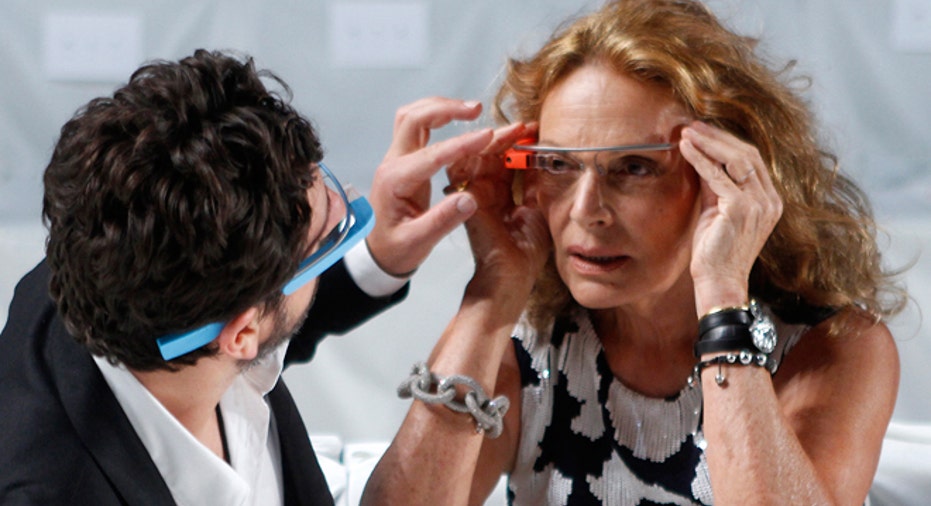The Cost of the Google Glass Disaster

Google’s head of research lab Google X has been out and about doing a very public Mea Culpa over the company’s Google Glass disaster.
Astro Teller, also known as the search giant’s Captain of Moonshots, essentially said at last week’s developer conference that Glass was not ready for prime time and Google should not have hyped the perception that it was a finished product the way it did.
Now he tells us.
Teller’s recent comments were widely reported, but he said more or less the same thing at Austin’s South by Southwest conference back in March. Why the big apology tour, especially when the company is showing no signs of abating its “shoot promotional videos first and tell customers you didn’t really mean it later” policy?
Let’s face it, this has been Google’s M.O. for a very long time.
When it started selling the beta version of Glass to the general public more than a year ago, I told you folks not to buy the hype, that “it’s a prototype being marketed and sold as a product” and “the only people who should be coughing up fifteen hundred bucks to be in a beta program are developers, reviewers or serious geeks …”
I hope you listened. If not, that makes you one of 8,000 people who own the most expensive dust collector ever sold.
In a recent post, consumer electronics expert Tim Bajarin called the experience of being a Glass Explorer “horrible from the start,” saying the user interface was “terrible,” the “connection unreliable” and the info of “little use.” He called it “the worst $1500” he’s ever spent in his life. That says a lot coming from one of tech’s most notable consumer device analysts.
I guess the company hasn’t given up on Glass, but then, why would it? I’m not sure CEO Larry Page and co-founder Sergey Brin are capable of giving up on anything. If they were, there would be no Google+. At least they replaced Google Checkout with Google Wallet, which will presumably be shelved in favor of the newly announced Apple Pay knockoff Android Pay.
Meanwhile, Teller has also been talking up the ongoing saga of Google’s self-driving car. It seems that once his developers had racked up enough highway miles, they thought they were done. Apparently, they hadn’t thought through the question of how to get the vehicle to and from the highway.
I guess it never occurred to them that nobody actually lives or works on a highway – but instead in homes and commercial buildings on city streets. Go figure.
Now the self-driving car is being redesigned as a new prototype model with a speed cap of 25 miles per hour, so its sensors and computers will have a chance to adapt to the myriad of incidents and emergencies that regularly occur in a nation with 250 million cars and trucks on the road and almost as many pedestrians.
The real question on my mind is, if it weren’t for federal safety standards that regulate which vehicles are street legal, would Google have sold the first self-driving car beta without realizing that it wasn’t capable of navigating city streets? After all, the way the company learned of the problem was by having employees attempt to get to and from work in the vehicles. Oh yes they did.
That brings us to Android Wear. When Google announced its wearable operating system way back in March of 2014, it sparked a frenzy of headlines proclaiming everything from “Google Beats Apple to Market in Smartwatches” to “Google has officially kicked off the wearables era … and Apple just fell a little further behind.”
One article said, “Google beat Apple to the punch,” which prompted me to write, “If by ‘punch’ it means Kool-Aid, I couldn’t agree more.” I went on to point out that, at that point, “Android Wear [was] nothing but a developer preview and some [videos]. The smartwatch market is still anyone’s game.”
Meanwhile, Apple Watch, which was just released 5 weeks ago, is expected to claim more than 50% market share this year, according to research firm IHS. As Apple has proved over and over, being first to market has no bearing on who ends up dominating. The funny thing is, Google should have learned that lesson long ago. It was far from the first search engine.
Which begs the question, why the chronic premature hype? As I said last week, when chairman Eric Schmidt turned the company over to Page and Brin with his legendary “Day-to-day adult supervision no longer needed!” tweet, that assessment may have been a bit premature. Since then, Google has become surprisingly overextended.
Not only do Google’s co-founders have their hands in way too many cookie jars, like kids who can’t wait until Christmas morning to open their presents, they seem to lack the discipline to wait for products to actually be products before running out and shouting about them to the world.
Bajarin alludes to the damage this sort of behavior does to the company’s credibility and reputation with customers and developers. He’s right; it definitely hurts what’s arguably Google’s most important asset: it’s brand. But I see no indication that it’s going to change, which just makes Teller’s Mea Culpa look transparently disingenuous.



















